October 15, 2011 - Supplement (View All Issues)
Special Supplement: Reports from Best of ASCO® Annual Meeting '11
The ASCO Post is pleased to present this special supplement with a focused review of more than 50 key abstracts from the Annual Meeting of the American Society of Clinical Oncology (ASCO), as presented and discussed at the Best of ASCO ’11 meetings (July 29-30, 2011, Miami, Florida, and August 5-6, ...
Research Increasingly Points to the Role of Molecular Diversity in Metastatic Lung Cancer
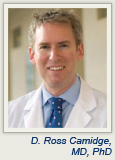 Molecular diversity—its existence, extent, and implications for therapy—was a central theme of key metastatic lung cancer studies presented at this year’s ASCO meeting, according to D. Ross Camidge, MD, PhD, of the University of Colorado, Denver, who addressed major findings in advanced lung cancer ...
Molecular diversity—its existence, extent, and implications for therapy—was a central theme of key metastatic lung cancer studies presented at this year’s ASCO meeting, according to D. Ross Camidge, MD, PhD, of the University of Colorado, Denver, who addressed major findings in advanced lung cancer ...
Incremental Advances Demonstrated in Management of Locoregional Lung Cancer
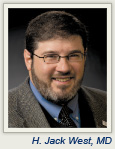 Data presented at the ASCO Annual Meeting this year on the management of locoregional lung cancer present a mixed picture, with some advances and some disappointments, according to H. Jack West, MD, of the Swedish Cancer Institute in Seattle, who reviewed studies in this area at the Best of ASCO...
Data presented at the ASCO Annual Meeting this year on the management of locoregional lung cancer present a mixed picture, with some advances and some disappointments, according to H. Jack West, MD, of the Swedish Cancer Institute in Seattle, who reviewed studies in this area at the Best of ASCO...
Breast Cancer Studies Explore Wide Variety of Prevention and Treatment Strategies, Offering New Insights
At the Best of ASCO® meeting in Miami, Harold Burstein, MD, PhD, Dana-Farber Cancer Institute, Boston, and Carey K. Anders, MD, University of North Carolina at Chapel Hill, presented high-impact breast cancer abstracts that will enable clinicians to optimize their use of radiotherapy and biologics. ...
Other Breast Cancer Studies of Note
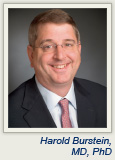 At this year’s Best of ASCO® Miami meeting, Harold Burstein, MD, PhD, discussed several studies he found interesting and relevant to clinical practice.
At this year’s Best of ASCO® Miami meeting, Harold Burstein, MD, PhD, discussed several studies he found interesting and relevant to clinical practice.
Genomic Assays
One study examined two genomic assays for ER-positive breast cancer, Oncotype DX and PAM50, and found considerable overlap among...
Standards of Care Confirmed in Latest Group of Colorectal Cancer Trials
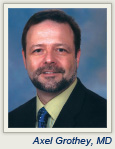 Colorectal cancer studies reported at this year’s ASCO meeting offered little in the way of practice-changing information, according to Axel Grothey, MD, of the Mayo Clinic in Rochester, Minnesota. But they did confirm existing standards of care, he noted at the Best of ASCO® meeting in Seattle.
Colorectal cancer studies reported at this year’s ASCO meeting offered little in the way of practice-changing information, according to Axel Grothey, MD, of the Mayo Clinic in Rochester, Minnesota. But they did confirm existing standards of care, he noted at the Best of ASCO® meeting in Seattle.
Practice-changing Evidence in Treatment of Noncolorectal GI Cancers
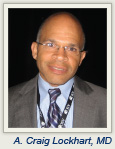 Studies presented at the ASCO Annual Meeting in the field of noncolorectal gastrointestinal cancer both reaffirmed certain standards of care and introduced some practice-changing data, according to A. Craig Lockhart, MD, of Washington University in St. Louis.
Studies presented at the ASCO Annual Meeting in the field of noncolorectal gastrointestinal cancer both reaffirmed certain standards of care and introduced some practice-changing data, according to A. Craig Lockhart, MD, of Washington University in St. Louis.
Perioperative Therapy for Gastric...
Similar Outcomes Confirmed in Variety of Lymphoma Treatment Comparisons
 Three abstracts reported at the Best of ASCO® meeting in Seattle provide guidance to hematologists when it comes to long-standing gray areas in lymphoma management, according to Oliver Press, MD, PhD, of the Fred Hutchinson Cancer Research Center and the University of Washington, Seattle.
Three abstracts reported at the Best of ASCO® meeting in Seattle provide guidance to hematologists when it comes to long-standing gray areas in lymphoma management, according to Oliver Press, MD, PhD, of the Fred Hutchinson Cancer Research Center and the University of Washington, Seattle.
Multiple Myeloma Research Spotlights Treatment Concerns and Advances
 Myeloma data reported at this year’s ASCO meeting raise concern about the safety of a mainstay class of drugs in this disease, while also hinting at good efficacy of some novel drugs and approaches, according to William I. Bensinger, MD, of the Fred Hutchinson Cancer Research Center, Seattle.
Myeloma data reported at this year’s ASCO meeting raise concern about the safety of a mainstay class of drugs in this disease, while also hinting at good efficacy of some novel drugs and approaches, according to William I. Bensinger, MD, of the Fred Hutchinson Cancer Research Center, Seattle.
Novel Management Strategies Assessed in Renal Cell and Prostate Cancers
 At the Best of ASCO Miami meeting, William Oh, MD, of the Tisch Cancer Institute, Mount Sinai School of Medicine, New York, described new trends and remaining questions in the management of renal cell and prostate cancers.
At the Best of ASCO Miami meeting, William Oh, MD, of the Tisch Cancer Institute, Mount Sinai School of Medicine, New York, described new trends and remaining questions in the management of renal cell and prostate cancers.
Axitinib vs Sorafenib in Second-line RCC
Axitinib, a potent and selective...
Screening for Ovarian Cancer May Do More Harm Than Good, but New Therapies for the Disease Are Improving Outcomes
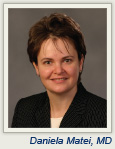 At the Best of ASCO Miami meeting, Daniela Matei, MD, Indiana University Melvin and Bren Simon Cancer Center, Indianapolis, described how new approaches are significantly prolonging remission in ovarian cancer.
At the Best of ASCO Miami meeting, Daniela Matei, MD, Indiana University Melvin and Bren Simon Cancer Center, Indianapolis, described how new approaches are significantly prolonging remission in ovarian cancer.
Ovarian Screening Provides No Benefit
The Prostate, Lung, Colorectal, and Ovarian...
Adjuvant Treatment Still Standard in Melanoma, but New Drugs Prolong Life in Metastatic Setting
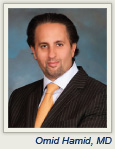 At the Best of ASCO® Miami meeting, Omid Hamid, MD, The Angeles Clinic and Research Institute (www.theangelesclinic.org), Los Angeles, California, reviewed abstracts that received a great deal of attention at this year’s Annual Meeting—the new treatments for metastatic melanoma. He also described...
At the Best of ASCO® Miami meeting, Omid Hamid, MD, The Angeles Clinic and Research Institute (www.theangelesclinic.org), Los Angeles, California, reviewed abstracts that received a great deal of attention at this year’s Annual Meeting—the new treatments for metastatic melanoma. He also described...
Novel Approaches and Agents Making Headway against Sarcoma
 Novel approaches and agents reported at the ASCO 2011 Annual Meeting are improving outcomes in sarcoma, a heterogeneous disease with historically poor outcomes, according to William D. Tap, MD, Section Chief of Sarcoma Oncology at Memorial Sloan-Kettering Cancer Center in New York. Dr. Tap...
Novel approaches and agents reported at the ASCO 2011 Annual Meeting are improving outcomes in sarcoma, a heterogeneous disease with historically poor outcomes, according to William D. Tap, MD, Section Chief of Sarcoma Oncology at Memorial Sloan-Kettering Cancer Center in New York. Dr. Tap...
New Therapies and Prognostic Techniques Highlighted in Head and Neck Cancer
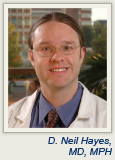 D. Neil Hayes, MD, MPH, of the University of North Carolina at Chapel Hill, described efforts to position the epidermal growth factor receptor (EGFR) inhibitor cetuximab (Erbitux) in head and neck cancer treatment.
D. Neil Hayes, MD, MPH, of the University of North Carolina at Chapel Hill, described efforts to position the epidermal growth factor receptor (EGFR) inhibitor cetuximab (Erbitux) in head and neck cancer treatment.
Surprisingly negative results came from the phase III Radiation Therapy Oncology...
